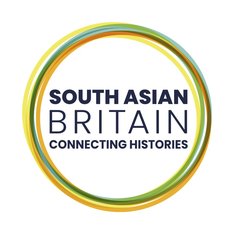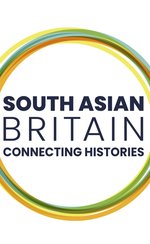Place of event
Sri Lanka
About
The origins of the Sri Lankan Civil War can be traced to British imperial rule, when Britain’s ‘divide and rule’ strategy stoked tensions between the Sinhalese – who constituted most of the country’s population – and Tamils, who were more likely to have access to English-speaking schools and therefore occupied positions of authority in the civil service and other professions.
After Sri Lanka became independent in 1948, the Sri Lankan Government, which largely constituted Sinhalese, implemented a range of controversial acts which were framed as interventions to develop a Sri Lankan national identity but instead promoted Sinhalese nationalism, which antagonized Tamils. This included the Sinhala Only Act 1956, which made Sinhala the only official language of Sri Lanka. In response, some Tamils organized to overthrow the Sri Lankan Government and to push for a separate Tamil state, or ‘Tamil Eelam’. The Liberation Tigers of Tamil Eelam (LTTE), also known as the Tamil Tigers, was founded in 1976 to fight for Tamil rights. It became the country’s most prominent insurgency group and adopted militant warfare tactics to meet its goals. The civil war began in Colombo in July 1983, during ‘Black July’ when an anti-Tamil pogrom descended into mass violence. This marked the start of a protracted civil war, in which the LTTE and Sri Lankan Government were implicated in war crimes, according to the United Nations.
Between 1983 and 2001, 917,000 Sri Lankans left the country, and many sought asylum in Britain, which has one of the largest Sri Lankan diasporas in the world. However, the Home Office often removed Tamil asylum seekers as they did not qualify for refugee status, despite those who were claiming asylum arguing that, if they returned to Sri Lanka, they would be persecuted. The High Commission for Sri Lanka in London argued that Tamils who were claiming asylum were doing so for financial gain.
During the 1980s Britain was the most important overseas site for LTTE activity and the LTTE’s international secretariat was located in London until 2001, when the British Government banned the organization under anti-terrorism laws. The Tamil diaspora in Britain, which was mainly concentrated in London, often engaged actively in the politics of Sri Lanka, with some funding the LTTE. This engagement was complex and varied, as Sri Lankans in Britain formed connections with other displaced Tamils and took part in campaigns against their forced removal by the Home Office, as well as atrocities committed during the war.
There are several examples which demonstrate the breadth of Tamil campaigning in Britain. In 1984, a year after ‘Black July’, Tamil protesters ran onto the pitch at Lord’s cricket ground, where England were playing Sri Lanka. Their banners included details about the genocide of Tamils in Sri Lanka. In 1998 an academic from Colombo named Dileepa Witharana ran workshops in Belfast to educate locals about the war and draw their attention to the similarities between the Sri Lankan civil war and the Troubles. In April 2009 100,000 protesters marched through central London to demand that the UK Government intervene in ending the war, with some protesters observing hunger strikes. The protest was organized by the British Tamil Forum, an advocacy group which was founded in 2006.
The civil war ended on 18 May 2009.
Anandakugan, Nithyani, ‘The Sri Lankan Civil War and Its History, Revisited in 2020’, Harvard International Review (31 August 2020)
Aspinall, Peter J., ‘The Sri Lankan Community of Descent in the UK: A Neglected Population in Demographic and Health Research’, South Asian Diaspora 11.1 (2019), pp. 51–65
Munas, Mohamed, ‘It Is Our Motherland Too: Transnational Engagement, Religious Identity and Mobilisation of Muslims of Sri Lankan Origin in the UK’, Diaspora Studies 16.2 (2023), pp. 142–71
Siddhisena, K. A. P. and White, P., ‘The Sri Lankan Population of Great Britain: Migration and Settlement’, Asian and Pacific Migration Journal 8.4 (1999), 511–36
‘Thousands on Tamil Protest March’, BBC (11 April 2009)
Velamati, Manohari, ‘Political Activism of the Tamil Diaspora in the West: The Battle Outside Sri Lanka’, Indian Foreign Affairs Journal 4.2 (2009), pp. 113–28
D4828/3/1/5/1/8, A leaflet advertising a workshop on conflict in Sri Lanka at Kilcranny House facilitated by Dileepa Witharana on 20 August 1998, Public Records Office of Northern Ireland, Belfast
Race on the Agenda, ‘Through the Generations: Sri Lankan Tamils in London Project’, https://tamilgenerations.rota.org.uk/about/
For image and copyright details, please click "More Information" in the Viewer.
Banner image credit
The Dome Hospital [Brighton], 1915, H D Girdwood Collection, Shelfmark: Photo 24/1, Courtesy of British Library Board, Usage Term: Public Domain
Image credit
© Remaking Britain: South Asian Connections and Networks, 1930s – present


